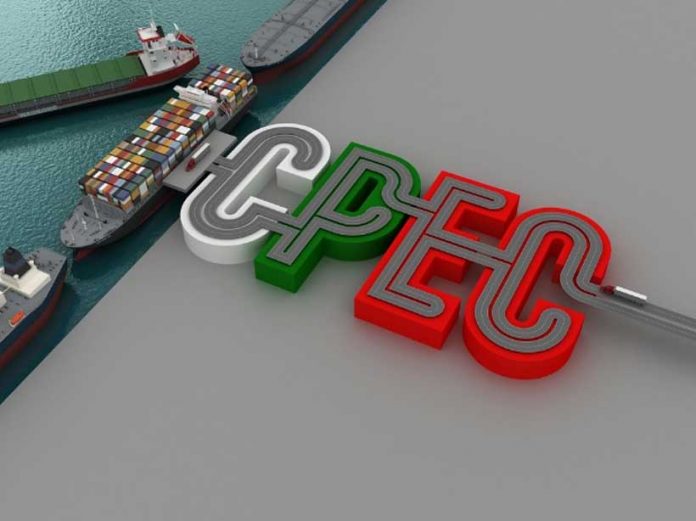The large business delegation Prime Minister Muhammad Shehbaz Sharif has brought with him on his five-day visit to China, that started on Tuesday, indicates deepening pragmatic economic cooperation is a key part of the agenda for his second visit to China since he took office in March. Apart from Beijing, where the Pakistani prime minister and the Chinese leadership will burnish the traditional friendship between the two countries, Shehbaz and the business delegation he leads will also visit Xi’an and Shenzhen, regional growth engines in Northeast and South China, respectively, with the aim of exploring new opportunities for cooperation.
High inflation and unemployment have exerted considerable downward pressure on Pakistan’s economy. That’s an important reason why the Shehbaz government attaches tremendous significance to upgrading the China-Pakistan Economic Corridor.
The CPEC is a flagship program of the Belt and Road Initiative that has stimulated Pakistan’s economic growth and brought tangible benefits to local people since it was launched in 2015. Reportedly, the two sides are looking to raise the CPEC to a higher level by promoting industry, energy, technology, innovation, green transition and opening-up of the Pakistani market to provide sustainable impetus for the country’s socioeconomic development over the next decade.
Both sides have expressed the hope that Shehbaz’s visit will help lay a solid foundation for the second phase of the program, which is expected to yield further economic benefits for the two countries, by building on the achievements of the first phase. During that process, the two sides should encourage more Pakistani companies to cooperate with Chinese enterprises, and more Chinese businesses to invest in the South Asian country.
That the Pakistani business delegation consists of representatives of 79 enterprises in industry, agriculture, mining, energy and information technology shows the fields in which Pakistan is seeking to strengthen its cooperation with China. And aerospace, science and technology, education and cultural and people-to-people exchanges are reportedly other sectors in which the Shehbaz government would like to tap the potential for expanded cooperation.
To facilitate the broadening and deepening of cooperation, Pakistan should formulate more reasonable pro-investment policies and implement related reforms to substantially improve the country’s business environment so as to attract more Chinese companies to invest in Pakistan. Meanwhile, as urged by Beijing, Islamabad should take more concrete actions to ensure the safety of Chinese people living and working in Pakistan.
How to further strengthen bilateral anti-terrorist cooperation has likely been a focus of Shehbaz’s meeting in Beijing. Shortly before Shehbaz’s China visit, eleven militants were put in custody.
They were accused of being involved in carrying out a deadly suicide attack at Dasu, Khyber Pakhtunkhwa province, on March 26 that killed five Chinese engineers, along with their Pakistani driver. It is expected that the Pakistani military will step up its crackdown on militants in the coming months in a bid to show its resolve to address the safety concerns of the Chinese people working and living in Pakistan. China is also willing to strengthen cooperation with Pakistan within the framework of the United Nations and the Shanghai Cooperation Organization to strengthen counterterrorism cooperation, promote regional unity and safeguard the legitimate rights and interests of developing countries. It is to be hoped that under the leadership of the Shehbaz government, Pakistan will enter a new stage of political unity, social stability, controllable security and sustainable development. Shehbaz’s visit shows that China and Pakistan will continue to support each other, and work hand in hand to push the China-Pakistan all-weather strategic cooperative partnership to a new level.



